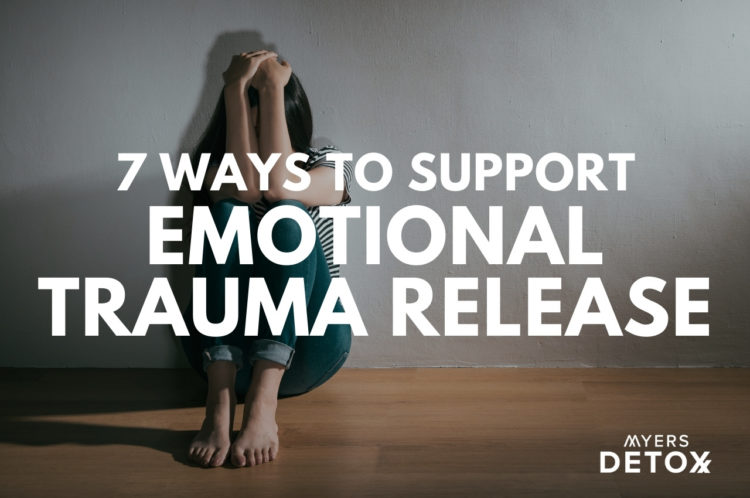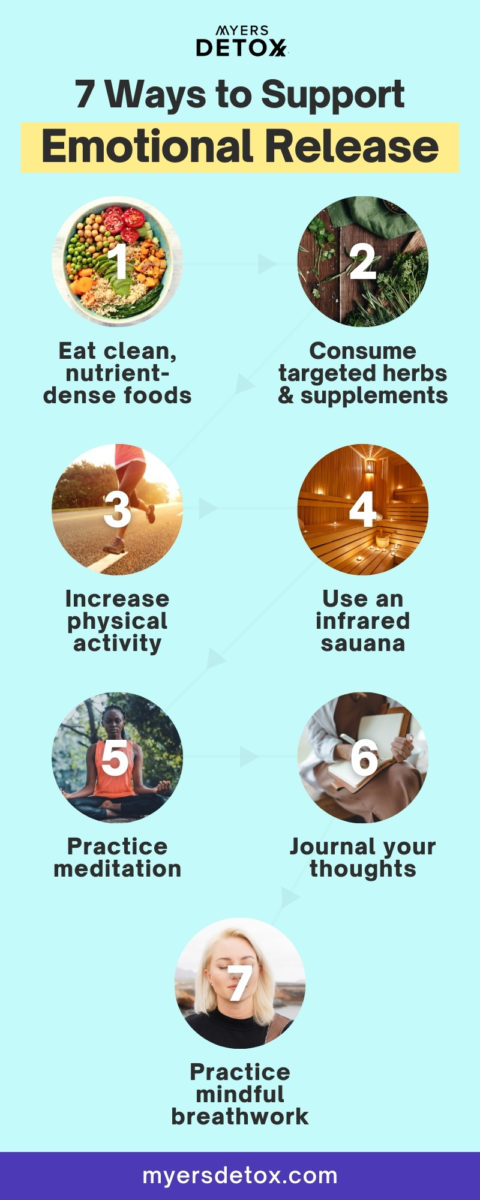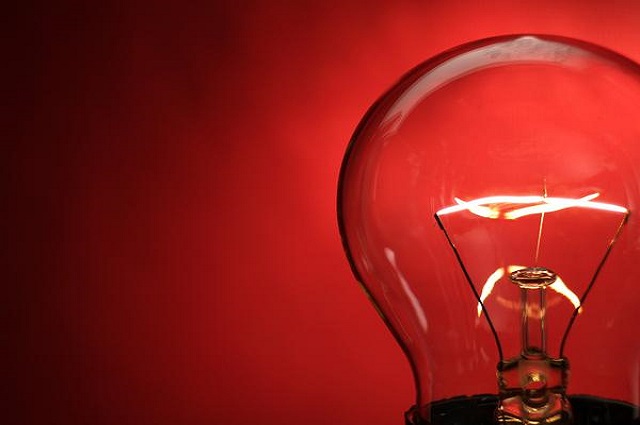7 Ways to Support Emotional Trauma Release

Can doing a detox help relieve emotional trauma? Or support emotional release?
As a society, we’re dealing with more stress and trauma than we have in a long time. While techniques like therapy and other forms of counseling can be incredibly helpful, adding in a detox protocol may be exactly what your mind and body needs to help release your trauma once and for all.
Many of my clients report that after one of my detox protocols they not only notice huge shifts in their energy, weight, and mental clarity — but old emotional hang ups seem to disappear as well.
In this article you’ll learn:
- What ancient cultures knew about emotions stuck in the body
- Why detoxing your body can instigate the release of long-repressed feelings
- How to manage emotions as they come up to be released
- Why it’s crucial to process emotions that come up
Detox and Emotions: The Mind-Body Connection
As strange as it may sound, when you detoxify your body (especially your liver), deep-seated emotions finally get a chance to resurface to be released. It’s believed that when something painful happens to you, the emotional trauma that we’re unable to process gets stored in your body. Therefore, when you open your channels for detoxification, you’re finally giving passageway for those stuck emotions to work their way out.
This all makes sense, as research shows that neuropeptides (small proteins produced by brain cells) work in concert with your brain, glands, and immune system to create a connection between your mind and body. Research shows that there are specific neuropeptides associated with trauma, and some researchers even suggest that these neuropeptides are the instigators behind what we call emotion[1][2].
Ancient Understandings of Detox and Emotions
Ancient traditions of medicine have understood the connection between the mind and the body for thousands of years. In both Traditional Chinese Medicine and Ayurvedic medicine (from India), there is no separation between the mind and the body. In other words, what you do to the body will always impact the mind, and vice versa.
From this perspective, detoxification will always have a profound impact on one’s emotional state.
Traditional Chinese Medicine
In Traditional Chinese Medicine (TCM), the function of the liver is directly tied to your emotions. Specifically, the emotion of anger. What’s more, the liver is said to house your spiritual consciousness.
When your liver is working optimally, you will feel a spark of life, be able to communicate, and have greater control over your emotional reactions. However, when the liver is stagnant, this control can break down and result in feelings of frustration and anger[3].
From a TCM perspective, your digestive system is also closely related to emotions. Specifically, feelings of depression, anxiety, and other mood disorders are said to be housed in the gut. This makes sense from a Western perspective, as many neurotransmitters originate in the gut, and the gut-brain connection is known to impact your emotional state significantly[4].
Ayurvedic Medicine
In India, the ancient medicine of Ayurveda takes a slightly different view on detox and emotions.
From the Ayurvedic perspective, all toxins, whether they be environmental, digestive, or emotional, are stored in fat cells. This is why seasonal detoxification is such a significant component of Ayurvedic medicine — it’s meant to cleanse not only your body but your mind as well.
When you cleanse, you allow for the opening of channels in your body. When these channels are open, they can be cleared, and as a result, fat and fat-soluble toxins are finally allowed to be released and eliminated from your body[5].
In Ayurveda, cleansing begins by enhancing your digestive fire and then supporting deeper tissues and organs of elimination. Therefore, as you do a liver or colon cleanse, you’re firing up the processes that make it possible for you to process old emotions through your body, along with toxic chemicals.
How Detox Supports Emotional Release
Whether you take a TCM, Ayurvedic, or Western view on detox, the results are all the same. Physically, you allow your body to remove old wastes and rejuvenate itself. And mentally, you free up space in your mind, and your life as old emotions come to the surface to be released.
The idea of processing old emotions may sound very appealing. Get rid of this anger I have for my dad? Finally, release the grief of losing my best friend? Releasing old emotions can be incredibly freeing, but the process of emotional release can be a challenge if you’re not prepared.
If you have big emotional traumas that you’re ready to release, working with a professional to walk you through the process is crucial. However, even if it’s just a maintenance cleanse that you’re going for, you never know what’s going to come up, so having a toolkit of practices to support your emotional release is always important.
Talking with a friend or loved one is an excellent way to process and get support when strong emotions arise. However, there are times when you may want to work through things on your own or go deeper into your psyche to process what’s coming up.
7 Ways to Support Emotional Release

1. Clean Up Your Diet
The first step in any detox protocol is to take a look at your diet. If you’re eating junk food that’s loaded with sugar and artificial ingredients, then you’ll be swimming upstream trying to get toxins out of your body.
On the other hand, if you can eliminate the junk and replace it with nutrient-dense foods that will support your cellular health, you’ll be giving your body the boost it needs to dig deep into those toxic stores and release what’s not serving you.
When detoxing, try to eliminate (or limit) the following:
- Sugar
- Processed carbs like candy, cake, cookies, etc.
- Processed meats that contain nitrates
- Low-quality, conventional meats
- Low-quality dairy products
- Alcohol
Instead, focus on:
- Organic fruits and vegetables
- Organic chicken and 100% grass-fed beef
- Organic eggs and dairy products
- Honey and maple syrup as sweeteners
- Organic herbal teas
Taking the step to clean up your diet, even if you’re just cutting back on the junk, will take a huge burden off your organs of detoxification. Remember, whatever you put in your mouth has to be processed through your body. And if it doesn’t belong, it has to go through your liver or kidneys to be removed.
2. Integrate Targeted Herbs and Supplements Into Your Diet
Once you’ve got your diet dialed in, avoiding the foods that will backup detox, and filling your plate with nutrient-dense options, it’s time to supercharge your detox with targeted herbs and supplements.
While food can go a long way in helping your organs do their jobs efficiently, specific herbs have an affinity for the liver and can help with the entire detox process. Whether it’s calming inflammation, enhancing your antioxidant stores, or directly supporting the health of your liver or GI function, detox herbs can act as a springboard for your efforts giving your body exactly what it needs to optimize the process of detoxification and elimination.
Some fantastic detoxification herbs and foods that support liver health and your detoxification pathways include:
- Turmeric
- Beets
- Dandelion
- Milk thistle
- Burdock root
It’s crucial to remember that you must always think of your digestive health in conjunction with your detoxification organs when doing any type of detox. You can provide your liver all the nutrients it could ask for to help your body clear itself of toxins, but if your digestion isn’t flowing properly, the released toxins won’t have an exit strategy.
This is why nutrients that support are vital to your detoxification plan. Prebiotic fiber like inulin helps to enhance the growth of healthy bacteria in your gut and assist in the movement of your stool. Meanwhile, herbal supplements like aloe can soothe your digestive tract and further assist in the fluidity of your bowel movements.
There are a lot of detox supplements to choose from, but very few offer the nutrients you need for both optimal liver and gut health.
I created Daily Detox as a way to get all of my detox-nutrient needs in one bottle. This blend of herbs and superfoods contains nutrients hand-picked by me that are research-backed to support the healthy function of your detoxification processes. In this formula, I not only include targeted nutrients for liver and digestive health, but metabolic health, anti-aging, and overall antioxidant support.
3. Get Moving
Physical activity is crucial not only for weight management but for mental health and optimal detoxification.
In fact, your lymphatic system, which is responsible for removing wastes from your blood, must be stimulated in order for it to do its job. Unlike your blood which has your heart muscle to pump it around your body, your lymphatic system relies on physical movement to get going[6].
Exercise also has an anti-inflammatory impact on the body and supports antioxidant systems. Research shows that physical activity may even improve liver steatosis in people with fatty liver disease[7].
4. Use an Infrared Sauna
An excellent way to enhance your detoxification process is to get yourself into a sauna. Your skin is not only your largest organ, but it’s one of your most important organs of detoxification.
When you sweat, you release toxic compounds like heavy metals from your body[8].
When possible, find a sauna that includes infrared light, as this will also enhance mitochondria synthesis, which will support overall vitality and energy[9].
5. Practice Meditation
Meditation is quickly becoming one of the most popular stress-reduction techniques out there — and for a very good reason.
Research shows that even short bouts of meditation, specifically mindfulness meditation, can improve emotional processing and emotional release. In general, meditation can enhance psychological well-being and help you feel more grounded[10].
Starting a meditation practice may feel overwhelming, but this simple technique can have profound effects in as little as 10 minutes a day.
If you don’t know where to begin, there are hundreds (if not thousands) of YouTube videos. You can also start with a five to ten-minute practice of sitting quietly and noticing your breath as you inhale and exhale.
6. Try Journaling
Journaling is a powerful way to get your emotions out of your head and onto the page. Research shows that when you write down your fears, worries, and other uncomfortable feelings, it lessens the impact that they have on you emotionally. It also allows you to take some perspective and look more objectively at your current situation.
Expressive writing has been shown to significantly reduce anxiety in individuals that are able to fully get their thoughts down on paper. With that being said, it’s crucial with journaling that you actually give it your all — don’t hold back. If you just start to open up on paper and then shy away from full expression, it could cause a backup of emotional processing[11].
For this reason, I highly suggest getting a journal with a lock so you can feel free to express yourself fully without worrying about who might come across your pages. You can also shred your old journal entries or burn them for an even more ceremonial clearing.
7. Practice Mindful Breathwork
Breathwork is a powerful way to connect your mind and body. Through the conscious control of your breath, you can bring your nervous system into a state of rest (parasympathetic mode) and teach your body that you’re safe[12].
Breathwork has also been studied for its impact on emotional release, particularly reducing stress[13].
Diaphragmatic breathing is one of the most well-researched types of breathwork for emotional control and a great place to start. A simple diaphragmatic breath practice consists of sitting up straight with one hand on your chest and the other on your belly. The goal is to breathe deep and slow in and out of your belly, with your chest remaining still. The hand on your belly should rise and fall, while the hand on your chest does not move.
As you slow down your breath, your mind follows suit and will become more calm and relaxed. From here, emotions can be a lot less triggering, and it’s much easier to objectify what is happening in your life.
Similar to mediation, there is no shortage of YouTube videos for breathwork.
Takeaway
The way that we’re looking at health in the Western part of the world is slowly changing, as the mind-body connection is no longer a theory but a scientifically backed phenomenon.
Looking back thousands of years to ancient forms of medicine like TCM and Ayurveda, we can see that caring for the body was intricately tied to caring for the mind. As such, if your goal is a healthy mind, you cannot overlook the importance of supporting your physical body.
If you’re dealing with unpleasant emotions due to emotional trauma, detoxing can be a powerful way to help these emotions move through your mind-body system.
During the process, take care of your body by optimizing your diet and providing it with nutrient-dense foods and herbs like those found in Daily Detox. And take care of your mind and support emotional release by finding someone to talk to or engaging in a practice like meditation, journaling, or breathwork.
Click Here for References+
- Pert, Candace B., et al. “Neuropeptides and their receptors: a psychosomatic network.” The Journal of Immunology 135.2 (1985): 820S-826S.
- Sah, R., and T. D. Geracioti. “Neuropeptide Y and posttraumatic stress disorder.” Molecular psychiatry 18.6 (2013): 646-655.
- Liu, Zhan-Wen, et al. “Liver in the Chinese and western medicine.” Integrative Medicine International 4.1-2 (2017): 39-45.
- Ye, Jiajia, et al. “An east meets west approach to the understanding of emotion dysregulation in depression: from perspective to scientific evidence.” Frontiers in psychology 10 (2019): 574.
- Herron, Robert E., and John B. Fagan. “Lipophil-mediated reduction of toxicants in humans: an evaluation of an ayurvedic detoxification procedure.” Alternative therapies in health and medicine 8.5 (2002): 40-51.
- Moore Jr, James E., and Christopher D. Bertram. “Lymphatic system flows.” Annual review of fluid mechanics 50 (2018): 459-482.
- https://www.sciencedaily.com/releases/2021/04/210412101923.htm
- Sears, Margaret E., Kathleen J. Kerr, and Riina I. Bray. “Arsenic, cadmium, lead, and mercury in sweat: a systematic review.” Journal of environmental and public health 2012 (2012).
- Nguyen, Linda M-D., et al. “Effect of near-infrared light exposure on mitochondrial signaling in C2C12 muscle cells.” Mitochondrion 14 (2014): 42-48.
- Wu, Ran, et al. “Brief mindfulness meditation improves emotion processing.” Frontiers in neuroscience 13 (2019): 1074.
- Niles, Andrea N., et al. “Randomized controlled trial of expressive writing for psychological and physical health: the moderating role of emotional expressivity.” Anxiety, Stress & Coping 27.1 (2014): 1-17.
- Zaccaro, Andrea, et al. “How breath-control can change your life: a systematic review on psycho-physiological correlates of slow breathing.” Frontiers in human neuroscience 12 (2018): 353.
- Ma, Xiao, et al. “The effect of diaphragmatic breathing on attention, negative affect and stress in healthy adults.” Frontiers in psychology 8 (2017): 874.









